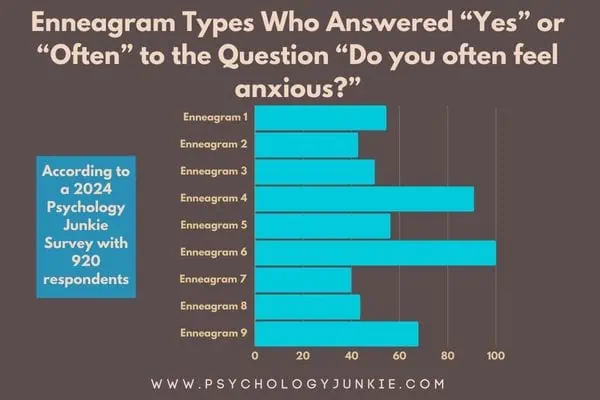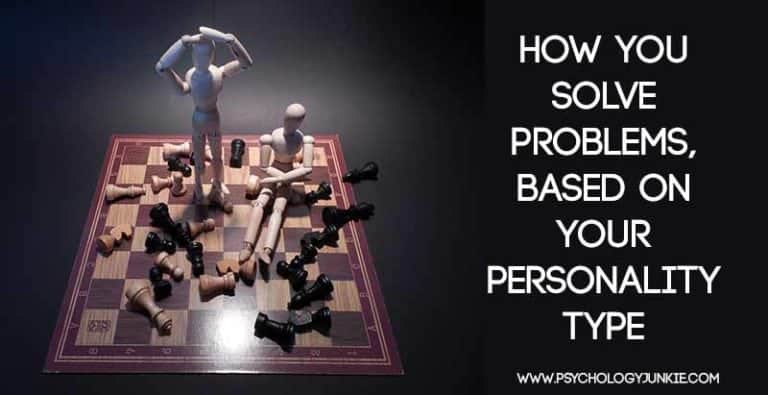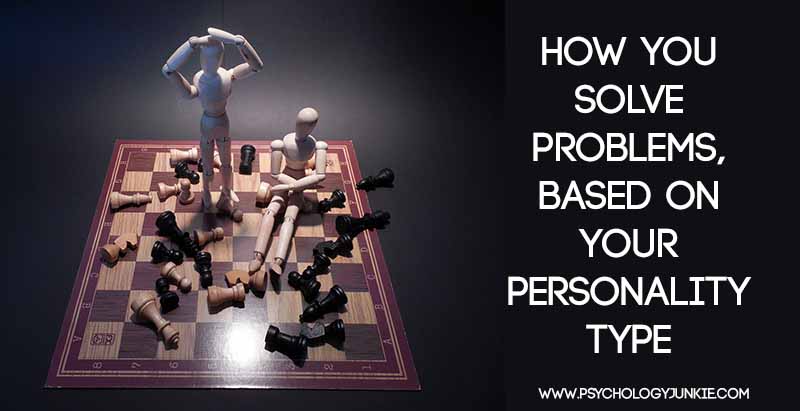The Most to Least Anxious Enneagram Types
Everyone experiences anxiety at one point or another; after all, it helps us survive in a world full of potential threats. But for some of us, anxiety is at the forefront of our lives, lurking at every corner. For others, it’s something they try to avoid through distraction or relationships. Which are you? How do you cope with anxiety? That’s something I wanted to explore.
But first, are we trapped in anxiety due to our Enneagram types? No. We can all grow and develop and find peace and courage. Today’s article will just reveal data and patterns, but it’s not conclusive. Every individual has unique capacities, talents, and life experiences that shape them regardless of their Enneagram types. However, understanding the data can help us to see potential patterns in individuals based on their personality types. With that in mind, I surveyed over 26,000 individuals from my email list who subscribe to my Enneagram content, as well as my social media followers. If you were one of those individuals, thank you! If you’d like to be included in the survey, you can take part in it here.

Of the 26,000 individuals I reached out to, 920 filled out my survey. In it, one of the questions I asked was, “Do you often feel anxious?” Here’s how each type responded, ranked from most to least anxious, along with some reasons why anxiety seems to hit each type in the way that it does.
Not sure what your Enneagram type is? You can find out by taking our questionnaire.
The Most to Least Anxious Enneagram Types

Table of contents
- The Most to Least Anxious Enneagram Types
- 1. Enneagram 6 (100% Yes or Often)
- 2. Enneagram 4 (90.91% Yes or Often)
- 3. Enneagram 9 (67.85% Yes or Often)
- 4. Enneagram 5 (56.25% Yes or Often)
- 5. Enneagram 1 (54.54% Yes or Often)
- 6. Enneagram 3 (49.25% Yes or Often)
- 7. Enneagram 8 (43.75% Yes or Often)
- 8. Enneagram 2 (42.86% Yes or Often)
- 9. Enneagram 7 (40% Yes or Often)
- Finding Your Way Through Anxiety
1. Enneagram 6 (100% Yes or Often)
If there was an Olympic sport for anxiety, you’d be wearing the gold medal. Sixes don’t just feel anxious occasionally; you practically set up camp in it. Your mind is a machine that generates worst-case scenarios faster than you can say, “But what if…?” The world feels unpredictable, so you’re always in preparation mode, crafting contingency plans like you’re preparing for the apocalypse. But rather than calming your fears, all that mental gymnastics can keep you in a constant loop of dread. Anxiety is like that irritating roommate who never does the dishes, but instead of moving out, you’ve learned to live with them.
Some Ways to Cope:
- Ground Yourself in the Present: Practice mindfulness techniques like deep breathing or grounding exercises to pull yourself out of future-forecasting and towards a healthy joy in the present moment.
- Limit Information Overload: It’s tempting to research every potential problem, but sometimes this just fuels your anxiety. Set a time limit for “planning” sessions, then shift your focus to something that gives you joy. Whether you can take a walk in nature, sip a cup of tea, or read a book just for fun, make scheduled time for activities that refuel you.
- Lean on a Trusted Support System: While you may question how much you can trust others, sharing your concerns with someone can help you find perspective and solutions.
Find out more about Sixes: 7 Struggles of the Enneagram Six Type
2. Enneagram 4 (90.91% Yes or Often)
For Fours, life can feel like an emotional roller coaster, and anxiety is the steep drop that leaves your stomach in your throat. You feel things intensely and often believe you’re fundamentally different from everyone else, like nobody “gets” you. Your idealism is both a gift and a curse; you have high standards for yourself, and a vision of a better world that you wish you could bring to reality. But when life falls short, you may sink into despair, obsessing over your imperfections or the harsh realities of a corrupt world. Anxiety finds you when you’re trying to grasp for meaning and connection, while fearing that you’re too much or not enough.
Some Ways to Cope:
- Set Boundaries with Your Emotions: Allow yourself time to feel and express emotions, but don’t let them consume your entire day. Schedule breaks from emotional processing to focus on grounding activities like nature walks, painting, meditation, or playing a musical instrument.
- Challenge Negative Self-Talk: When you catch yourself being self-critical or angry at the world, remind yourself out loud of the good. Say to yourself, “I am allowed to feel good,” “I am loved and worthy,” or “I am still learning, so it’s okay to make mistakes.” I know these affirmations can feel silly, but they do help.
- Engage in Meaningful Self-Expression: Create art, music, or writing to process your feelings constructively. Doing something creative can provide an outlet for deep emotions while also reducing anxiety.
More About Fours: 7 Struggles of the Enneagram Four Type
3. Enneagram 9 (67.85% Yes or Often)
As a Nine, peace and inner calm are your ultimate goals, but anxiety disrupts that peaceful state like a pebble dropped into a still pond. You want to avoid conflict and tension at all costs, but ironically, avoiding problems doesn’t make them go away. When stress mounts, it’s like a quiet hum that grows louder, but you’d rather tune it out than face it. There’s a lingering fear that if you let anxiety in, it will disrupt the balance you strive so hard to maintain. So, you might bury it, distract yourself, or just zone out—but deep down, the worry still lingers.
Some Ways to Cope:
- Take Small, Incremental Steps Toward Action: Anxiety often increases when you avoid problems, so start by tackling small tasks. Breaking things down can make the situation feel less overwhelming.
- Practice Assertiveness: Speak up about your needs, even if it feels uncomfortable. Avoiding conflict can keep you stuck, while small acts of assertion can eventually relieve internal tension.
- Stay Physically Active: Movement helps you reconnect with your body and break the cycle of anxiety-induced procrastination or numbing.
Discover more about Nines: Seven Struggles of the Enneagram Nine Type
4. Enneagram 5 (56.25% Yes or Often)
Fives have a complicated relationship with anxiety. You aren’t one to shy away from darkness or potential threats; in fact, you might even spend hours researching the very things that could go wrong. But even your quest for knowledge doesn’t always calm the anxiety. Instead, it can make you feel even more aware of what could happen. Your need for privacy and time alone can make the world seem overwhelming, and when you’re pushed out of your comfort zone, the anxiety can flood in. The pressure to engage, to act, and to “people” when you’d rather be in your mind palace can be daunting.
Some Ways to Cope:
- Get Out Sometimes: While you may prefer solitude, too much isolation can feed anxiety. Try setting goals that get you out of your house, like meeting a friend for coffee once a week or taking a 15 minute walk in nature every day.
- Focus on Physical Activities: Activities like yoga, hiking, or swimming can help balance your mind and body, bringing you out of overthinking and into the present.
- Test Your Knowledge: If you’ve been researching something for a while, take some time to test that knowledge in the real world. For example, perhaps you’ve learned a lot about survival techniques. Take a weekend and go camping with only the bare minimum of tools. Testing your knowledge can help you to feel more confident and capable and less anxious or hesitant.
Find out more about Fives: 7 Struggles of the Enneagram 5 Type
5. Enneagram 1 (54.54% Yes or Often)
For Ones, anxiety often comes with a side of self-criticism. You’re constantly striving to improve, do better, be better. But perfection is a moving target, and the fear of falling short can leave you in a constant state of tension. For you, meeting expectations isn’t enough; you have to exceed them and be constantly above reproach or criticism. The idea of being flawed, wrong, or fallible keeps you up at night, and while you try to hide your vulnerability, it can manifest as that tight feeling in your chest that just won’t go away. You manage your anxiety by staying busy, keeping your standards high, and double-checking everything—twice.
Some Ways to Cope:
- Let Go of Perfectionism in Small Areas First: Start with tasks that don’t carry high stakes and allow yourself to be “good enough.”
- Practice Self-Compassion: Treat yourself as you would a friend. When you make mistakes, remind yourself that you’re only human and it’s okay to be imperfect. There’s even beauty in that.
- Create a Routine for Relaxation: Set aside time each day for something that’s purely enjoyable and unproductive—whether that’s reading fiction, watching a favorite show, or spending time outside.
6. Enneagram 3 (49.25% Yes or Often)
Threes live on the treadmill of achievement, and it can be exhausting. You’re always striving to hit that next goal, but there’s a voice in the back of your mind asking, “What if I’m not enough?” Anxiety creeps in when you worry that you’ll fall short or when people won’t see the image you’re trying to project. It’s hard to relax because there’s always one more thing to accomplish, one more thing about your appearance or career or lifestyle that isn’t “good enough.” Success feels like the only antidote, but the pressure to perform can leave you feeling stuck in a never-ending race.
Some Ways to Cope:
- Embrace Moments of Stillness: Schedule time in your day to rest without any agenda. Breathe, relax your body one muscle group at a time, and do something that replenishes your soul (meditation, prayer, a hot bath, a hot drink on the porch).
- Detach Your Worth from Your Achievements: Practice separating your self-esteem from your accomplishments by thinking about the qualities you like about yourself that have nothing to do with success. For example, instead of saying “I like that I’m a successful lawyer,” you could say, “I like that I work hard and have a resilient spirit and a desire to help people with my voice.”
- Allow Vulnerability in Small Doses: Opening up about your struggles can feel daunting, but even small acts of vulnerability can reduce anxiety and build connections and friendships that run deep rather than shallow.
7. Enneagram 8 (43.75% Yes or Often)
Eights may seem like they have it all together, but that doesn’t mean anxiety isn’t knocking at the door. You’re all about strength and control, and letting anxiety show can feel like letting your guard down. But underneath that tough exterior is a fear of vulnerability. The idea that someone else could control you, hurt you, or manipulate you creates pressure that builds up, even if you don’t always recognize it as anxiety. Instead, you might channel it into anger, determination, or just pushing harder, but even warriors need a break sometimes.
Some Ways to Cope:
- Acknowledge Vulnerability as Strength: It’s okay to admit when you’re anxious or overwhelmed. Letting your guard down occasionally can actually help you feel more in control, not less.
- Channel Energy into Physical Exercise: Release built-up tension through activities like weightlifting, boxing, or intense cardio. Physical exertion can act as a natural stress reliever.
- Practice Delegating Tasks: You don’t have to carry every burden alone. Trust others to help, and recognize that delegating isn’t a sign of weakness.
8. Enneagram 2 (42.86% Yes or Often)
Twos worry about their relationships the way some people worry about missing their morning coffee. You’re deeply attuned to the needs and feelings of others, and when there’s disharmony, you can’t just brush it off. Anxiety strikes when you fear rejection, disconnection, or not being loved. You might throw yourself into caregiving, hoping that your efforts will bring the reassurance you hunger for. But the problem with basing your self-worth on others is that people are unpredictable, and that unpredictability is what keeps the anxiety alive.
Some Ways to Cope:
- Set Boundaries on Giving: Allow yourself to say no and prioritize your own well-being. Helping others is admirable, but not at the expense of your mental health.
- Create Some Self-Care Rituals: Spend time doing activities that nurture you personally, like journaling, meditating, or taking a long bath—without feeling the need to justify it.
- Recognize When You’re Overextending: If you’re feeling overwhelmed, take a step back and evaluate whether you’re giving too much. Practice letting go of the fear that not helping will lead to rejection.
9. Enneagram 7 (40% Yes or Often)
For Sevens, anxiety is that irritating shadow that pops up when you least expect it. You’re so focused on keeping life fun and exciting that there’s little room for dread, but that doesn’t mean it doesn’t find you. It’s usually lurking when the thrill wears off, when boredom sets in, or when you’re forced to sit with uncomfortable emotions. In those moments, your mind races to escape the feeling, jumping from one idea or activity to the next. It’s not that you don’t experience anxiety; it’s just that you’re always trying to outrun it with distraction.
Some Ways to Cope:
- Find Joy in Routine Activities: It’s easy to bounce from one exciting thing to the next, but try finding comfort in more ordinary, grounding experiences. The smell of pine needles on a fall breeze, the rich flavor of your morning coffee, or the pleasure of a simple stretch that releases tension in your muscles.
- Set Boundaries with Distractions: When anxiety starts to creep in, resist the urge to jump into the next thrill. Take some time to sit with your feelings and process them instead of escaping.
- Balance Fun with Inner Work: While it’s natural to avoid pain, try adding reflective practices like journaling or meditation to your daily routine to acknowledge deeper emotions.
Finding Your Way Through Anxiety
Anxiety is a universal experience, but how we manage it varies from one Enneagram type to the next. Whether you’re a Six with an arsenal of contingency plans or a Seven dodging heavy emotions, the key is to acknowledge your anxiety without letting it dictate your life. Each type has strengths to bring to the table: Sixes can anticipate problems, Fours have deep emotional insight, and Eights have courage in the face of adversity.
If you’re feeling overwhelmed, give yourself permission to slow down. Take a moment to breathe, laugh, or even poke fun at the worry monster. Remember, you’re not alone in this—there’s a whole world of anxious people out there, each one navigating it in their own way.
References:
The Wisdom of the Enneagram: The Complete Guide to Psychological and Spiritual Growth for the Nine Personality Types by Don Richard Riso and Russ Hudson (Bantam Books, 1999)













Wow it goes from 40% to 100%!! That’s… a lot of anxiety!!
For me it’s only on special occasions, because of ADHD, when I want stuff to go well because I don’t want to deal with stuff if they don’t go well. For example I’ll be extra careful I’m sitting at the right gate when taking the plane.
I can feel bad when I failed at something, like horse riding where I can’t seem to change my old riding habits, or for being awkward to someone. I don’t know if that’s anxiety?
I feel like I can imagine what anxiety is like, but I hate it, and it’s not really something I feel naturally. Maybe with the wing 7, I ignore it. I don’t know.
Generally though I’m not really anxious. It requires way too much energy and my brain is messy enough thanks to ADHD × “high IQ” or whatever. My mind is like the flying key challenge from Harry Potter, but random stuff. Like the etymology of “civilisation” at 6 in the morning. Am I anxious about it? No. Do I need to know? Yes.